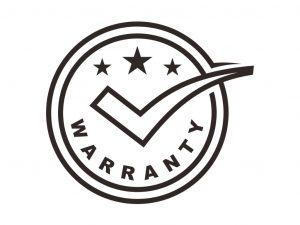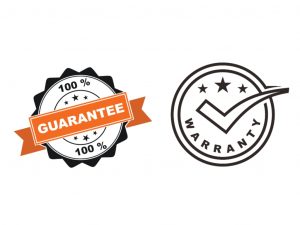Differences Between Warranty and Guarantee: Warranties and guarantees are among the first things that spring to mind when considering acquiring goods or services. Although the warranty and guarantee appear to be comparable, they are not. Both warranty and guarantee have their benefits, and it is the consumer’s responsibility to determine if the items or services they are purchasing belong under either of these categories.
A guarantee is a statement that a product or service will be of high quality. A warranty, on the other hand, is a written and legal promise. In a nutshell, a warranty is more precise than a guarantee.
In this article, I’ll go through the key distinctions between a warranty and a guarantee, so you can figure out which is better. This also eliminates the possibility of producers defrauding you. To begin, let’s look at the meanings of both terms.
Recommended: Differences between legal contract and agreement
Meaning of Warranty
A warranty is a formal assurance from the manufacturer to the consumer that all product specifications and facts are true. That, among other things, the product is well-made in terms of quality, fitness, performance, and durability. It’s an add-on to the main purpose of the contract. It attests to a product’s quality, fitness, and performance.

If these facts do not satisfy you, the product will be fixed or replaced, as needed, during the warranty term. Companies issue warranties to develop customer trust in their products by demonstrating that they are confident in their quality.
Firms execute a set of tests once a product is completed in order to establish the proper warranty duration. Companies are more likely to give a guarantee on manufactured things for a set period of time after ensuring that they would last for a set period of time without needing to be serviced.
Also see: Advantages and Disadvantages of Being a Leader
Meaning of Guarantee
The guarantee is defined as a commitment to the product or service’s after-sales performance. It states that the maker has made a guarantee about the product’s content, quality, or performance and that if the manufacturer fails to meet that promise, the product will be replaced or repaired, or the money paid as consideration will be repaid.

The guarantee is a more advanced form of warranty in which the producer is more confident in the product’s quality. Unlike warranties, guarantees provide confidence that if a product cannot be fixed and no replacement product is available, the buyer’s money will be repaid.
The guarantee, like the warranty, is valid for a set length of time. It does, however, serve as a consumer right. The guarantee covers all features of the device and is specific to manufacturer faults. The manufacturer assures that the complete product will be repaired or replaced with a new one without further expenses.
In most circumstances, the guarantee is assumed; nevertheless, for specific items, it might be stated in writing. It’s difficult to prove an implicit guarantee contract.
Recommended: Most technologically advanced countries in Africa

Distinctions Between Warranty And Guarantee
1. Meaning: A warranty is a formal guarantee that the information provided about the goods is correct and true. The warranty ensures the consumer that the product’s specifications are accurate and that it actually meets all of them. Only repairs or replacements will be made if the product does not meet the specifications or has a manufacturing fault.
The guarantee, however, is the manufacturer’s promise to the customer. A guarantee is a commitment provided by a manufacturer to a consumer who buys a product. If the product fails to match the specifications or expectations, it will be fixed and replaced, or the money will be reimbursed within the terms of the guarantee.
2. Cost: Most items come with a limited warranty, which means that customers do not have to pay anything more if something goes wrong during that time frame. The supplementary warranty, on the other hand, may only be purchased for a fee. The guarantee, on the other hand, is free and subject to specified limitations. A guarantee is only available on a few types of items.
Recommended: Differences Between Entrepreneurship and Intrapreneurship
3. Further Assistance: By paying an extra fee, the warranty can be extended. Most laptops, for example, come with a one-year limited warranty that may be extended for an additional fee. Extended assistance is not normally supplied as part of a warranty. Obtaining an extra assurance is quite unusual.
The guarantee, on the other hand, can be combined with the warranty for an extra fee. Consumers can make use of the warranty after the guarantee term has expired.
4. Refund: If a guarantee is offered, buyers can file a complaint to get their money back if they are unhappy with the goods or encounter problems. In the warranty, however, this is not feasible. Money-back guarantees are not covered under warranty unless the manufacturer is unable to repair and replace the item.
Also see: Best Countries To Practice Nursing 2022 (With High Salary)
5. Factors: When a product has manufacturing faults, a warranty is provided. However, both manufacturing flaws and human errors are covered under the guarantee. It is, however, only applicable if it is mentioned explicitly.
6. Form: The warranty is always issued in writing, and the goods come with a warranty card. The warranty card is used to verify the product’s purchase date. The guarantee might be expressed in writing or implicit. If the assurance is delivered orally, it is difficult to verify.
Also see: Difference Between Simple Interest and Compound Interest
7. Sale Restrictions: A warranty is an additional condition of sale that is included with the goods, either explicitly or implicitly. A guarantee may or may not be a selling condition. Only a few types of items are covered by the warranty.
8. Liability: There is a limit to the warranty’s liability. Only the faulty parts of the product will be repaired or replaced by the manufacturer. Consumers have the right to request that all parts be replaced. The guarantee, on the other hand, covers every element of the product. The manufacturer may be able to replace the complete device, saving the consumer time. The product may also be repaired under the terms and circumstances mentioned.
9. Period: A warranty is generally offered for a specific amount of time, such as two years, five years, 10 years, and so on.
A guarantee can be issued in a variety of ways and for a certain time depending on the type of goods – for example, a 100 percent guarantee within 90 days, a 100 percent money-back guarantee within 30 days, a premium quality guarantee, and so on. The manufacturer’s terms and conditions are included in these guarantee choices.
Recommended: Differences Between Language And Dialect
What does a Warranty or Guarantee entail?
Let’s imagine we acquire a device that comes with a one-year warranty. After a few days, it begins to behave weirdly, as if some of its features begin to run automatically. Even if you don’t have a remote, the volume may automatically raise or decrease. Because the equipment is covered by a one-year warranty and we have only used it for a few days, we may take it to an approved service center for repair. Because the fault is a technical error, they will repair the goods without charging any further expenses.
However, if we buy a device with a guarantee and drop the box while taking it home, the screen will be broken. The warranty will not be given in this scenario.
We are now liable for the damage; thus, we will be paying for the cost of the screen as well as any service fees.
The summary of it all is, that if there are any manufacturing flaws, the manufacturer is solely accountable. Otherwise, the owner shall be held responsible for any flaws or damages.
Also see: Differences Between Void And Voidable Marriage
Conclusion
After the lengthy explanation above, we can conclude that while guarantee and warranty are similar in that they both mention product performance, they are not the same thing.

Edeh Samuel Chukwuemeka, ACMC, is a lawyer and a certified mediator/conciliator in Nigeria. He is also a developer with knowledge in various programming languages. Samuel is determined to leverage his skills in technology, SEO, and legal practice to revolutionize the legal profession worldwide by creating web and mobile applications that simplify legal research. Sam is also passionate about educating and providing valuable information to people.